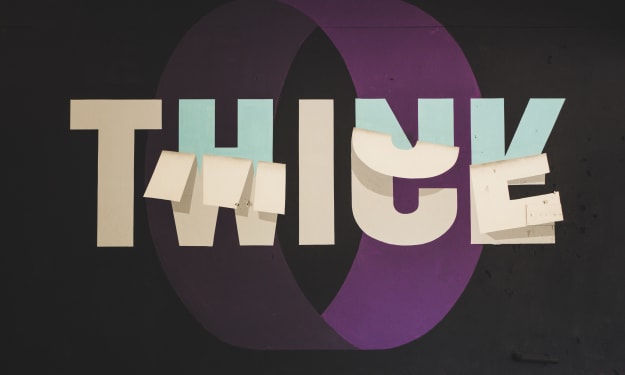Calling Upon Your Memories to Craft Powerful and Memorable Stories
Powerful tools you can implement today for entrepreneurs, freelancers, and ghostwriters…

Can you remember the last time you shared an anecdote with someone?
Perhaps it was a hilarious story of something that happened to you, or maybe it was a heart-wrenching tale from your personal life. Whatever the case, chances are that – when recounting the experience – you drew upon your memories to make the story as powerful and memorable as possible.
As a ghostwriter, it's often my role to not only stir these up with clients but also capture them responsibly.
But I digress...
Look, we all have memories, and whether we realize it or not, we all use those memories to power the stories we tell.
Have you ever shared an experience with someone and noticed how, as you recounted it, specific details became more vivid? That's because you were drawing upon your memory to make the story more powerful and memorable.
This blog post will discuss how you can use your memories to craft unforgettable stories for your business. We'll discuss the following:
- What memories make for powerful stories
- How to tap into your memories and use them to power your writing
- Tips for recalling your memories in a way that is useful and interesting
- The benefits of telling powerful and memorable stories
Let's dive in.
What memories make for powerful stories
The best stories are the ones that are rich in detail and evoke strong emotions.
When choosing a memory to share, it's essential to consider both of these factors. A great way to do this is by thinking about moments in your life that were particularly joyful or challenging. These memories usually make for the most compelling stories because they are full of emotion and detail.
For example, let's say you own a pet grooming business. You could share a memory of when you rescued an abandoned puppy covered in fleas. This would be a good story to share because it would evoke feelings of compassion and joy in your listeners (two emotions that would be beneficial for pet groomers).
Alternatively, it might be in later years, when you started your first job in the industry and a boss took you under her wing and taught you some important business lessons.
You need to not only write down the memory itself in terms of what happened but also describe the setting and action using all of your senses.
Remember how it made you feel before, during, and after an event.
How to tap into your memories and use them to power your writing
Now that you know what kind of memories make for good stories, it's time to learn how to tap into those memories and use them to power your writing.
Here are three ways to do that.
-Keep a journal: A great way to ensure that you always have material for memorable stories is by keeping a journal (or some written record) of your experiences. That way, when you need a story, all you have to do is flip through your journal and find one that's appropriate.
-Talk to friends and family members: Another great way to gather material for memorable stories is by talking to your friends and family members about their experiences. Often, they will be more than happy to share their personal anecdotes with you, which can give you plenty of fodder for your writing.
-Brainstorm alone or with others: If you need help coming up with ideas for memorable stories, try brainstorming with someone else (or a group of people). Brainstorming can help jumpstart the creative process and get the ball rolling.
Tips for recalling your memories in a way that is useful and interesting
Once you have an idea for a story, it's time to start recalling the details from your memory so you can write them down (or share them verbally).
For example, who else was affected by it? Some of the memories might not even be about you but about someone else you once knew. You can tell a story without identifying someone. Keep it vague and nonspecific.
Here are three methods for doing this in a valuable and interesting way.
-Start at the beginning and work chronologically: A great way to recall the details from your memory is by starting at the beginning of the experience and working chronologically through it until you reach the end. This will help ensure you remember all important details along the way.
-Focus on specific sensory details: Another great way to recall the details from your memory is by focusing on specific sensory details (e.g., what you saw, heard, smelled, tasted, and felt). This will help bring the experience to life for you and your listener (or reader).
-Use dialogue: If any dialogue was involved in the experience, include it in your recounting of the story. This will help add authenticity and interest.
The final word
The best stories are usually chock-full of emotion and detail – two things that most people's fondest (and foggiest) memories tend to have in common!
Thankfully, there are ways to draw upon those fuzzy recollections and turn them into clear as day –and highly compelling – yarns. By keeping a journal, talking casually with loved ones, and focusing on vital sensory details, you can also learn how to turn everyday life occurrences into once-in-a-lifetime tales.
Something that affected you might affect or better your audience the same way, and you can open their eyes through storytelling and help them live a better life.
Learn more about storytelling, ghostwriting, and cutting-edge ink-slinging insights. Get in the know right here.
About the Creator
Rick Martinez
I help CEOs & entrepreneurs write & publish books that give them authority & legacy | Bestselling author | Former CEO turned ghostwriter |
California born, Texas raised.






Comments
There are no comments for this story
Be the first to respond and start the conversation.